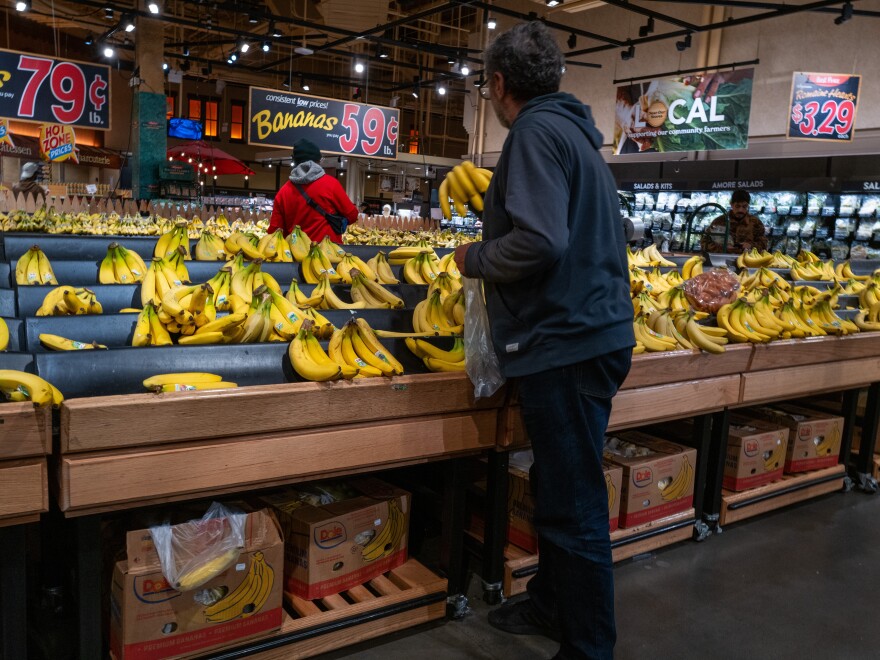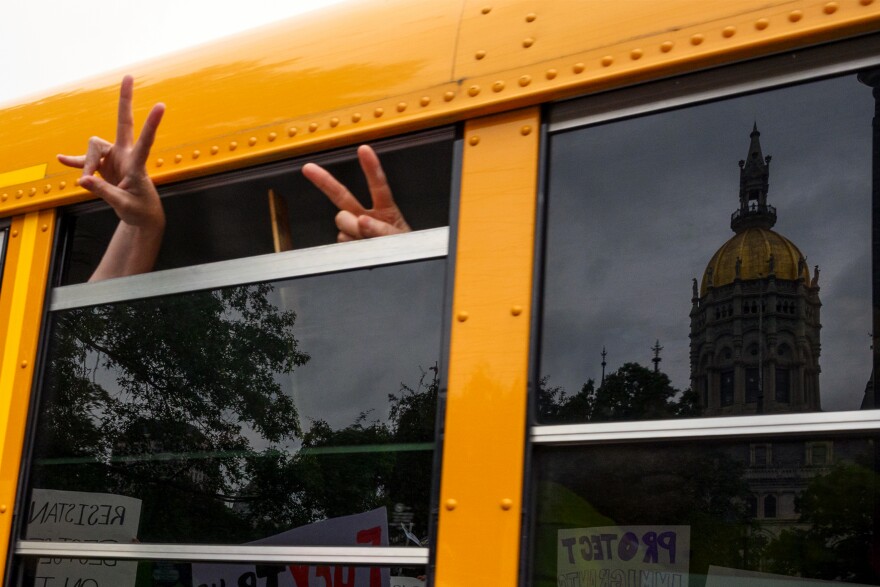Updated @ 9:26 PM EDT on July 28, 2025
After the federal government ordered states to provide the specific, private data of food aid applicants and their household members, a group of 21 states and Washington, D.C., filed a lawsuit against the U.S. Department of Agriculture on Monday.
States have been given until July 30 by USDA to provide information about all SNAP applicants during the previous five years, including names, residences, birth dates, and Social Security numbers. The agency expanded the range of data it is gathering last week to include additional information about household members and immigration status.
According to USDA, states that don’t follow the rules risk losing money.
Democratic attorneys general from California and New York are spearheading the new federal complaint, which claims USDA has violated many federal privacy laws. The states are requesting that a judge prevent USDA from requiring the data or from depriving states that refuse to provide it with funding.
At a press conference on Monday to announce the lawsuit, California Attorney General Rob Bonta stated, “SNAP recipients provided this information to get help feeding their families not to be entered into a government surveillance database or be used as targets in the president’s inhumane immigration agenda.”
The Trump administration is gathering and connecting government data in novel ways for reasons such as immigration enforcement, which coincides with the court battle over SNAP data. In order to assist immigration enforcement agents in identifying individuals who might be deported, the administration is taking action to share IRS and Medicaid data with them.
USDA’s request for SNAP data is described in the lawsuit as “another step in this Orwellian surveillance campaign.”
To prevent the administration from sharing Medicaid data, a group of states has already filed a lawsuit.
Children of U.S. citizens can get SNAP benefits regardless of their parents’ immigration status, while immigrants without legal status are not eligible.
Banta disputed USDA’s claims that centralizing information on SNAP applications and recipients is necessary to verify the program’s legitimacy and make sure that only qualified individuals are getting benefits. The federal government already has anti-fraud procedures in place and established methods for auditing state data without obtaining personally identifiable information.
“This isn’t about oversight and transparency,” Banta stated. “The goal here is to implement extensive monitoring while claiming to be combating fraud. We can call it what it is: an unlawful data grab intended to deter people from applying for government aid.
In addition to violating federal privacy laws and USDA’s own authority, the lawsuit claims that the agency’s data gathering scheme is unconstitutional. The lawsuit lists the USDA’s Office of Inspector General as a defendant in addition to Agriculture Secretary Brooke Rollins. This is because, as NPR first reported in May, the office has been requesting sensitive information from certain states on its own.
USDA does not comment on lawsuits, a USDA representative told NPR. A request for comment from the U.S. Department of Justice was not answered.
This is the second lawsuit filed by the states contesting USDA’s data collection strategy.Weeks after USDA’s May announcement of the plan, a collection of SNAP participants, an anti-hunger group, and a privacy nonprofit sued. The lawsuit is still pending. Last week, the plaintiffs asked the federal judge in that case to step in and delay the agency’s deadline for data collecting, but the judge denied their request.
Every month, about 40 million people nationwide receive SNAP assistance.
To ascertain whether applicants are eligible for food assistance, states gather comprehensive information from them. Prior to this request, the states had always retained that data.
However, in an effort to combat waste, fraud, and abuse, the USDA has referenced one of Trump’s executive orders that demands “unfettered access” to data from state programs that receive federal funding.
When applying for SNAP, applicants must provide the states with specific information, such as their landlord’s contact details, energy bill amounts, and medical debt, according to Michigan Attorney General Dana Nessel.
“Government at all levels has a responsibility to be good stewards over the private personal identifying information we request from our residents in order to effectuate these programs,” Nessel stated.
USDA stated in its public notice last month regarding its data gathering plan that it might share the information with law enforcement and other agencies, including foreign countries, in the event of a potential violation of any type, even if it had nothing to do with SNAP.
14 states objected to USDA’s public notice in a comment, arguing that the program’s enabling statute was in conflict with the widespread use of SNAP data.
USDA received almost 450 public comments, including the state submissions. The USDA pushed on to start gathering data on July 24, the day after the comment period ended, despite a top USDA official acknowledging that the majority of comments collected by last Monday were against the idea.
Although it is unclear how many states are on track to fulfill the July 30 deadline, some states have stated that they intend to comply with USDA’s request.
During the public comment period, for instance, the Texas agency that oversees the state’s SNAP program informed USDA that it wanted additional clarification on the data collection procedure and that it would take eight to ten weeks to submit the data after receiving responses.
The lawsuit claims that gathering and producing the data would take California over three months.
According to the lawsuit, the data demand will make people less inclined to use SNAP.
In her state, Michigan Attorney General Nessel said she has heard anecdotal instances of mixed-status families avoiding food pantries or SNAP benefits, even when their children qualify, because they are afraid of immigration enforcement.
“Parents are too afraid to get food for them now,” Nessel stated. “And that is so cruel on every level I can possibly imagine.”
Copyright 2025 NPR






